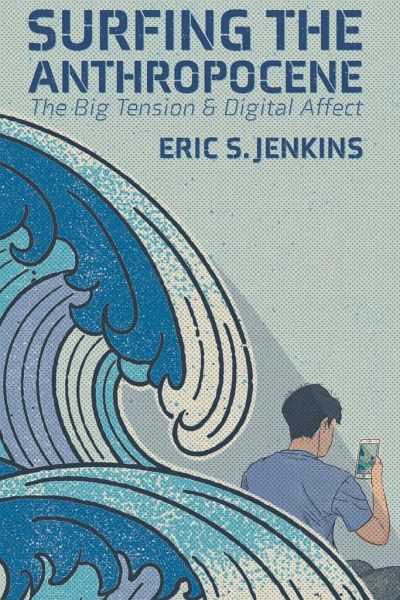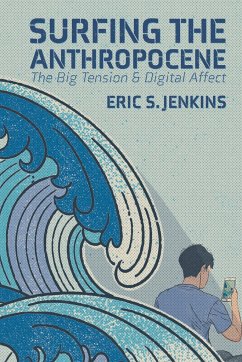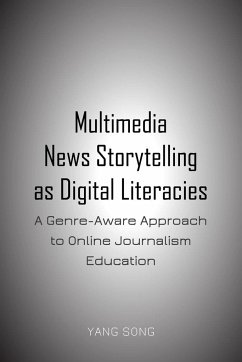
Surfing the Anthropocene
The Big Tension and Digital Affect
Versandkostenfrei!
Versandfertig in 6-10 Tagen
122,65 €
inkl. MwSt.
Weitere Ausgaben:

PAYBACK Punkte
0 °P sammeln!
Surfing the Anthropocene shows how the "big tension" between the speed and scale of digital media characterizes affective life on the public screen today. An innovative look launched in the wake of the 2016 US presidential election, Eric S. Jenkins illustrates how the big tension is reflected in how we feel and talk about digital media. Exploring a variety of modes from following news on Twitter to discussion on Facebook, activism to witnessing police shooting videos, the book demonstrates how responses to the big tension make political activity more like videogames, with an "immeditative" tem...
Surfing the Anthropocene shows how the "big tension" between the speed and scale of digital media characterizes affective life on the public screen today. An innovative look launched in the wake of the 2016 US presidential election, Eric S. Jenkins illustrates how the big tension is reflected in how we feel and talk about digital media. Exploring a variety of modes from following news on Twitter to discussion on Facebook, activism to witnessing police shooting videos, the book demonstrates how responses to the big tension make political activity more like videogames, with an "immeditative" temporality and "attentional" spatiality contrasted with meditative and tending modes such as gardening. As a near-monoculture of immeditative, attentional modes emerge, consumerism and affect privilege become reinforced in ways that make addressing the problems of the Anthropocene especially draining and difficult.
Original concepts throughout the book, including the big tension butalso the affected subject, translucency, and homo modus, are sure to influence thinking about digital media. If you wonder why life today feels particularly urgent, heated, and intense, Surfing the Anthropocene offers a compelling answer-the big tension-as well as a way to reimagine digital experience with an eye towards surviving, rather than just surfing, the Anthropocene.
Original concepts throughout the book, including the big tension butalso the affected subject, translucency, and homo modus, are sure to influence thinking about digital media. If you wonder why life today feels particularly urgent, heated, and intense, Surfing the Anthropocene offers a compelling answer-the big tension-as well as a way to reimagine digital experience with an eye towards surviving, rather than just surfing, the Anthropocene.














